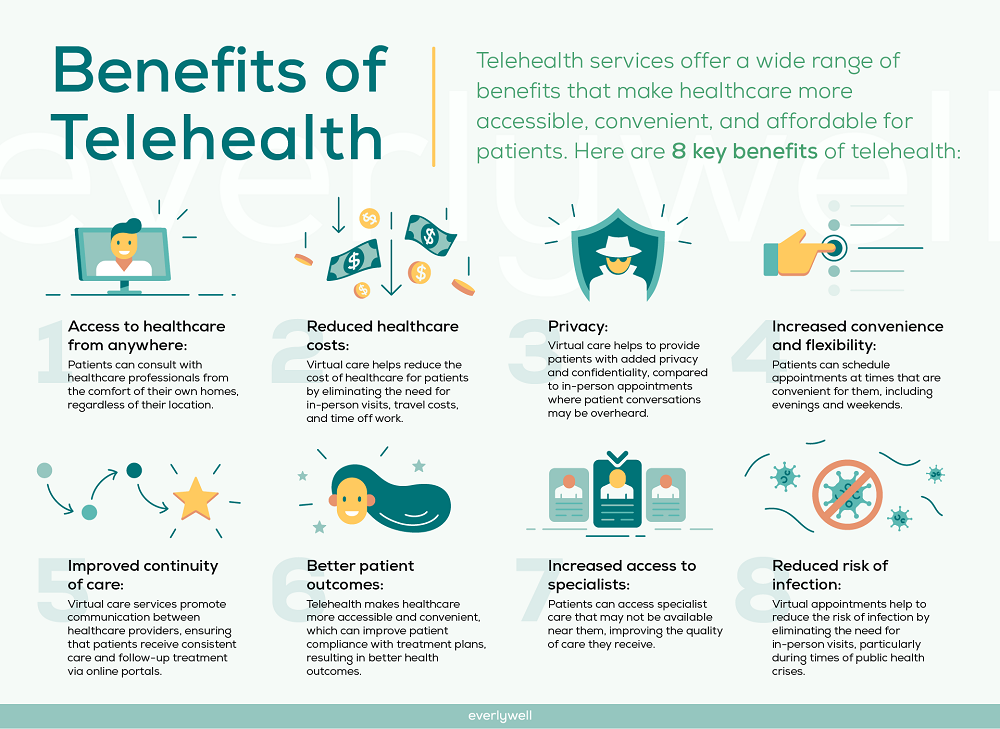
What drugs can telehealth providers prescribe?
Written on December 19, 2022 by Gillian (Gigi) Singer, MPH, Sexuality Educator & Certified Sexologist. To give you technically accurate, evidence-based information, content published on the Everlywell blog is reviewed by credentialed professionals with expertise in medical and bioscience fields.
Table of contents
Depending on the drug, you may or may not be able to get a prescription via telehealth.
About telehealth
During the COVID-19 pandemic, telehealth gained popularity as a way for people, especially older folks, people with limited mobility, and people living with disabilities and preexisting conditions to access care without physically going into the doctor’s office.
Telehealth comes in the form of phone calls, video calls, remote monitoring, and/or secure messaging with a doctor, nurse, physician assistant, physical or occupational therapist, and in some cases, social workers or psychologists [1].
Telehealth prescription laws
So, can prescriptions be given via telehealth? Yes, though each state has different laws about what drugs can be prescribed and to whom [2].
The purpose of these laws is to limit the amount of medication abuse, particularly of controlled substances and opioids. The National Center for Drug Abuse Statistics found that 6% of Americans over the age of 12 abuse prescriptions every year and 12% of prescription drug abusers are addicted [3].
What can be prescribed?
The CDC states that just under half of people in the United States have used at least one prescription drug in the past 30 days and about a quarter of people have used three or more [4]. The most commonly prescribed classes of drugs are analgesics (pain relievers), antihyperlipidemic agents (drugs to lower cholesterol), and antidepressants [4].
You can get most prescriptions that you need via telehealth.

Controlled substances
Regulated medications can fall under the following categories: abortion pills, stimulants, opioids, benzos, ketamine, and anabolic steroids [5].
Because of the COVID-19 pandemic, regulations regarding previously disallowed medications to be prescribed virtually have been changed.
The Ryan Haight Act of 2008 put restrictions on the administration of controlled substances via telehealth, though some of those regulations were lifted because of the pandemic as long as the following conditions are met:
- “Providers can now issue a prescription for a CS without first conducting an in-person examination, provided all of the following conditions are met:
- “The prescription is issued for a legitimate medical purpose by a practitioner acting in the usual course of their professional practice;
- “The telemedicine communication is conducted using an audio-visual, real-time, and two-way interactive communication system; and
- “The practitioner is acting in accordance with applicable federal and state laws.” [6]
All that said, however, one should verify their state’s requirements, which you can do on the website of the Center for Connected Health Policy (CCHP) or here.
Who can prescribe?
According to the CCHP, “most states consider using only an internet/online questionnaire to establish a patient-provider relationship (needed to write a prescription in most states) as inadequate. States may also require that a physical exam be administered prior to a prescription being written, but not all states require an in-person examination, and some specifically allow the use of telehealth to conduct the exam.” [7]
Getting prescriptions with Everlywell
Looking for a way to get your prescriptions? Everlywell now provides fast and easy telehealth visits that are covered by major insurance plans. You can receive care from a licensed nurse practitioner via technology that protects your privacy, and it’s all at your fingertips. Depending on your insurance, you may pay between $10 and $60. Many major insurance plans are accepted.
With telehealth from Everlywell, you are just three simple steps away from talking to a provider about your prescriptions:
- Create your profile online, fill out your medical history, and check to see if your insurance is accepted.
- Schedule your online telehealth visit.
- Receive a care plan to address your needs and symptoms, which may include testing, prescriptions, and lifestyle recommendations.
Everlywell’s licensed nurse practitioners can be consulted regarding:
- Headaches
- Fatigue
- Weight changes
- Stomach pain
- Burning with urination
- Rash/Hives
- Changes in hair, skin, and nails
- Problems sleeping
- Cold & flu
- COVID-19
- UTIs
- Other STIs
- Minor skin issues
Related content
Is telehealth cheaper than an office visit?
Can you get flu treatment online?
Can you treat the flu without going to the doctor or healthcare provider?
Remote patient monitoring for diabetes explained
References
- Medicare. E-Visits Coverage. Accessed November 28, 2022. URL
- Wagener D. Telehealth vs. telemedicine: What’s the difference? GoodRx. Published November 16, 2020. Accessed December 14, 2022. URL
- NCDAS. Prescription Drug Abuse Statistics. National Center for Drug Abuse Statistics. Published May 2, 2022. Accessed December 14, 2022. URL
- CDC. Therapeutic Drug Use. National Center for Health Statistics. Published September 6, 2022. Accessed December 14, 2022. URL
- Preuss CV, Kalava A, King KC. Prescription of Controlled Substances: Benefits and Risks. StatPearls [Internet]. Last updated September 21, 2022. Accessed November 8, 2022. URL
- Baney L, Brady J, Stevenson S-L, Faegre Drinker Consulting. The Future of Telehealth and the Ryan Haight Act Post-Pandemic. National Association of Boards of Pharmacy. Published April 22, 2021. Accessed December 14, 2022. URL
- CCHP. State telehealth policies for online prescribing. Center for Connected Health Policy (CCHP). Accessed December 14, 2022. URL